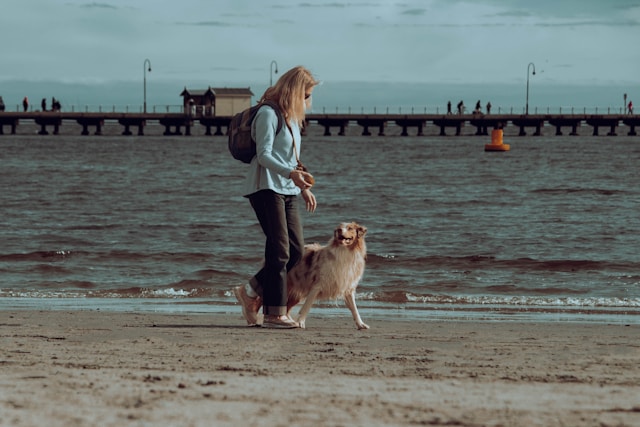What types of services do trainers offer and which is best for my dog?
- Uncategorized
-
Jun 06
- Share post

Dog trainers offer a variety of services. Below is an overview of the services commonly available, and some factors you should consider when deciding on the right fit for your dog.
Private Training – Private training sessions involve individualized consultation and coaching between the trainer, you, and your dog. Following an initial session where training goals and plans are established, many trainers also offer an option where they work with the dog directly without you needing to be present. This is commonly referred to as “Day Training.” Most trainers offer private training in-home, or in public locations appropriate for the dog’s goals. Private training offers personalized attention and is ideal for dogs with individualized needs or those who may not do well in group settings. However, private training is often the most expensive service type.
Group Classes – Group classes bring together multiple owners and dogs to work towards a similar goal. While most group classes are focused on foundational topics and teaching basic manners, such as Puppy Kindergarten, certain trainers also offer classes on more specialized concerns, such as leash reactivity or separation anxiety. Group classes provide socialization opportunities for dogs and are cost-effective for owners compared to private training.
Board & Train – Board and train programs involve sending the dog to the trainer’s facility for a certain period to work on specific goals. Board and trains are often an appealing option for owners with busy schedules who may not have time to devote to training. However, since the dog will be trained in a different environment, it is not guaranteed that the progress made will transfer easily to the home environment. It is also important that the owners receive coaching as well so that they can continue the training the dog received during the program. Furthermore, since the owners will not have as much visibility into the training process, it is especially crucial to choose a certified trainer who utilizes force-free methods to ensure the dog’s physical and emotional health throughout the program. Many trainers offer Day Training, where they work with the dog as part of the dog’s regular routine, as an alternative to Board and Trains.
Playgroups – Playgroups are trainer supervised sessions for dogs to socialize with other dogs. While playgroups are especially beneficial for puppies during their prime socialization period, structured playgroups are also a great opportunity for adult dogs to receive physical exercise and practice good social skills. During playgroups, trainers carefully read dog body language to ensure all dogs are playing appropriately, and ideally reinforce skills like recall and checking in with owners – making them a good alternative to public dog parks. When choosing socialization opportunities, look for playgroups that are supervised by certified trainers, maintain small group sizes, and pair dogs of similar size and temperament.
